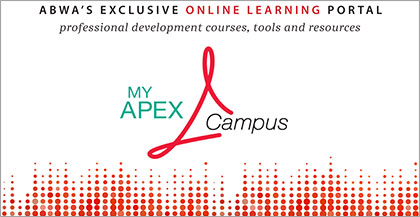
Business is Blooming by Russell Trahan
Regardless of what date the calendar shows, business is blooming – and the season for sowing success is officially here. The ways businesses can promote themselves is blooming, too – blogs, podcasts, social media, website search engine optimization, television, magazines! How can business owners, subject matter experts, and thought leaders weed out what will land on the rocks and what will bear fruit when it comes to publicity?
You see, a targeted publicity campaign is much like gardening. It requires an innate understanding of the medium where your expertise best fits, properly nurturing the attention that you generate, and reaping the rewards of increased awareness of your unique space in the business market.
So where to start? The soil, of course!
The Soil – Your Market
A successful publicity campaign starts with deep knowledge of where your knowledge works. Whether you excel at providing management solutions or the art of making the most of the clock, you don’t simply want to blast out your content like a defective garden hose. Just like different substrates, different avenues exist for your expertise – and you need to choose the one that’s best for your expressed goals.
Whether that means pitching your content out to a specific geographic area or DMA that pertains to a coming event, or providing comment on a national news story, you have to possess a keen awareness of where your knowledge best fits and the outcome that you’re hoping to elicit.
Sowing – Targeted Pitching
Just like you shouldn’t take a scattershot approach to planting seeds you hope will eventually produce fruit, you shouldn’t assume you can just cover each and every aspect of the media with a publicity campaign. It’s about targeted pitching of content to editors, writers, and producers.
Plant your expertise seeds where you have the strongest opportunity for success. That means having a firm grasp on your target market where you know you have a strong shot of developing enduring roots – not just a momentary glimpse of sunlight.
Nurturing – Building Relationships
Anyone who has ever seen that first seedling sprout in their garden or field knows that immediate feeling of elation. Things are happening! I wasn’t just tilling and watering this soil for no reason! It’s a burst of excitement in knowing that your work had paid off. But those same folks will can also identify with watching their work wilt on the vine and the inescapable thought that more could have been done.
Once you have started the process of pitching out your expertise – be it to daily newspapers in the form of interview availability, or articles to trade, industry, and association publications, it’s imperative that you nurture those leads by properly tracking and following up with the editors who have requested your comment or content.
One of the biggest mistakes that is made during a publicity campaign is fostering a one-sided relationship. Each one of those columnists and editors is looking to fill space with intriguing content on a consistent basis. Just like you wouldn’t prune your leaves or fertilize all at once when it’s convenient, you need to maintain a dialogue with those who are looking to you for answers.
That doesn’t mean to bombard them with emails or phone calls—it simply entails having a firm process in place to touch base on the status of your article or interview, and be ready to reach out when a mutually beneficial opportunity arises.
The Harvest – Frequency and Repetition
The pinnacle of sowing season is the harvest—where you can reap the rewards of your time, efforts, energy, and dedication. After months of tending to your crops, it’s finally time to take out your bushels and account for your yield.
In a PR campaign, the sowing season runs year-round as a well-targeted campaign means you’ll receive a bounty of coverage on a consistent basis – regardless of the date on the calendar.
To the Market – Benefiting from Publicity
Off to the market with your haul! This is where the hard work really pays off and you can assign a definitive, tangible value to the time investment to planting, tending, and harvesting your crop.
With publicity, post-placement marketing is a key, critical component in a campaign’s life cycle. Without effective marketing to the associations and industries who utilized your expertise in their publication you cannot truly capitalize on the commitment you made to growing your business or enhancing your audience at the outset.
Effectively marketing the publication that you receive involves outreach to the industries who found direct value in your content—be it your perspective in an interview or your unique selling propositions in articles. Without leveraging these placements and marketing to those industries, you’ll be left with a bounty without a buyer.
With business back in full bloom, events are currently being planned and organizations are seeking experts to enrich their audiences with their point-of-view. To enjoy the full range of benefits of a publicity campaign you must think like a farmer or gardener—determine the fertile soil for your content, sow the seeds of your expertise with targeted pitching, with a green thumb frame-of-mind (in a monetary context, of course), nurture the relationships built, and then leverage your placements to begin marketing your content.
As the gardeners and farmers among you know, it doesn’t happen overnight. But with time, care, and dedication you’ll enjoy the rewards of a fruitful publicity endeavor.
About the Author:
Russell Trahan is the Owner/President of PR/PR Public Relations and the Author of Sell Yourself Without Saying A Word. PR/PR/ Public Relations is a boutique agency specializing in thought-leaders and subject-matter experts. He positions his clients’ expertise in front of their target market. PR/PR Public Relations has a 20+ year history of getting 100% of their clients results. For more information, please visit: www.PRPR.net.




